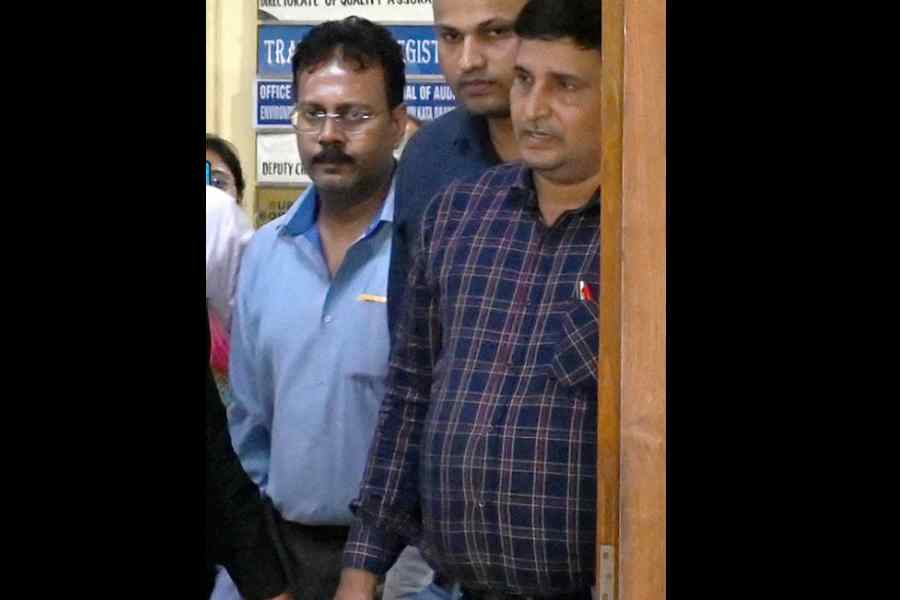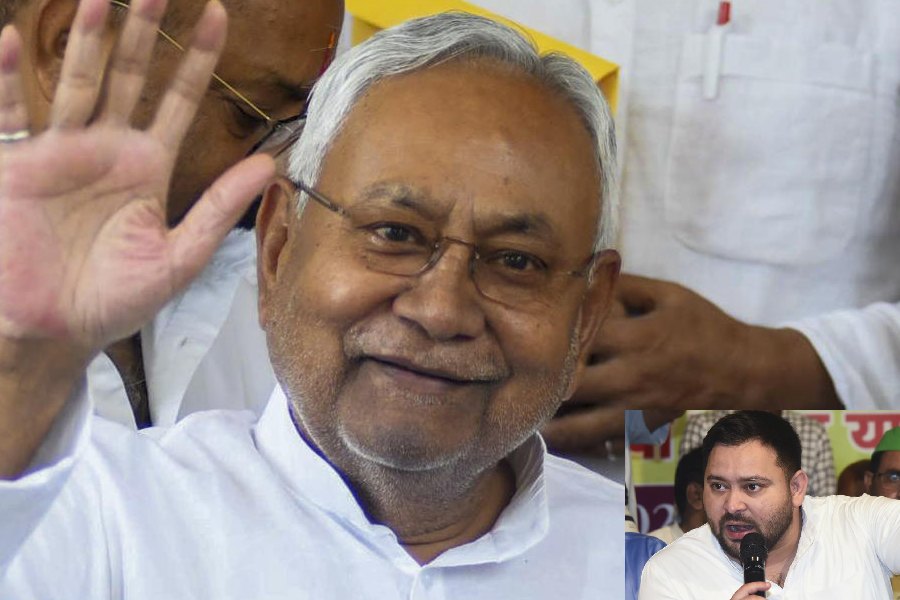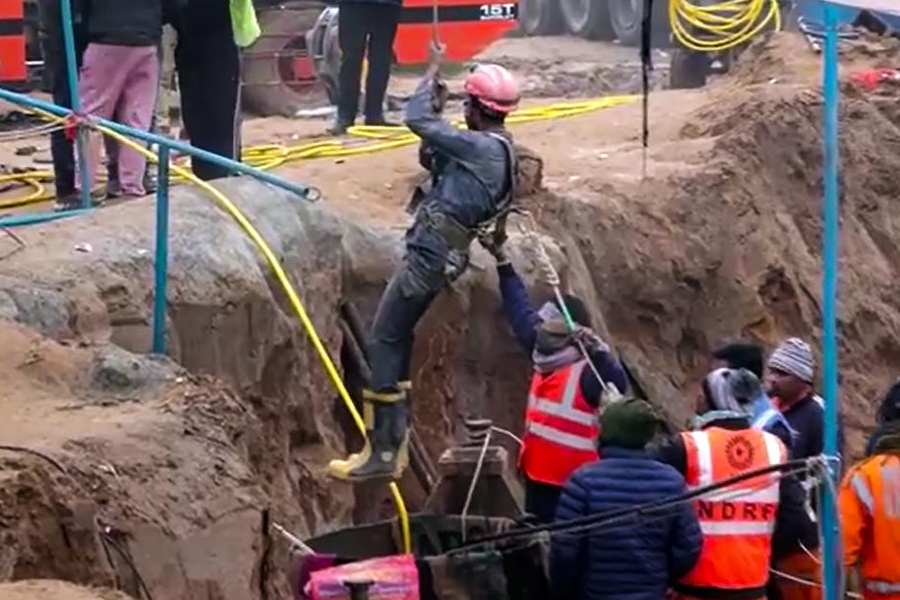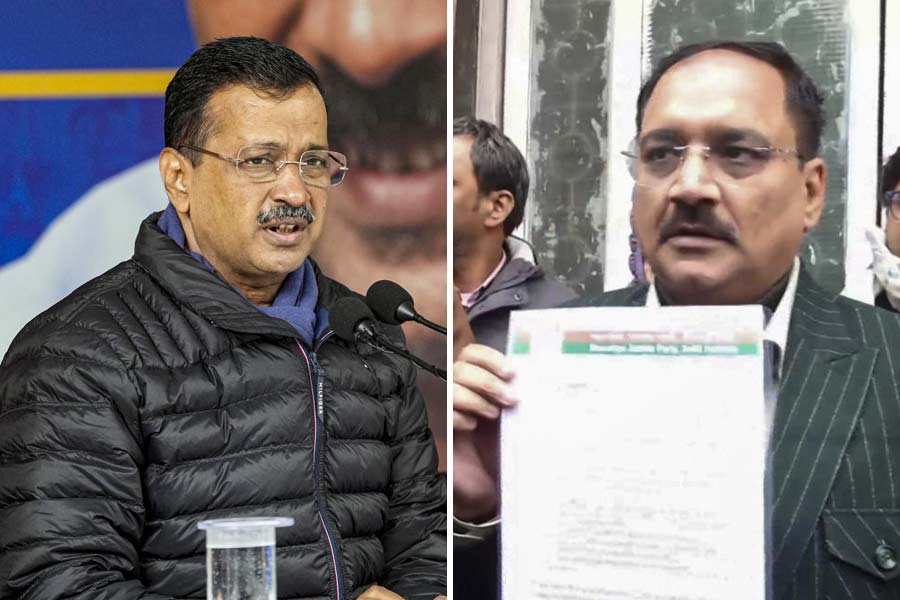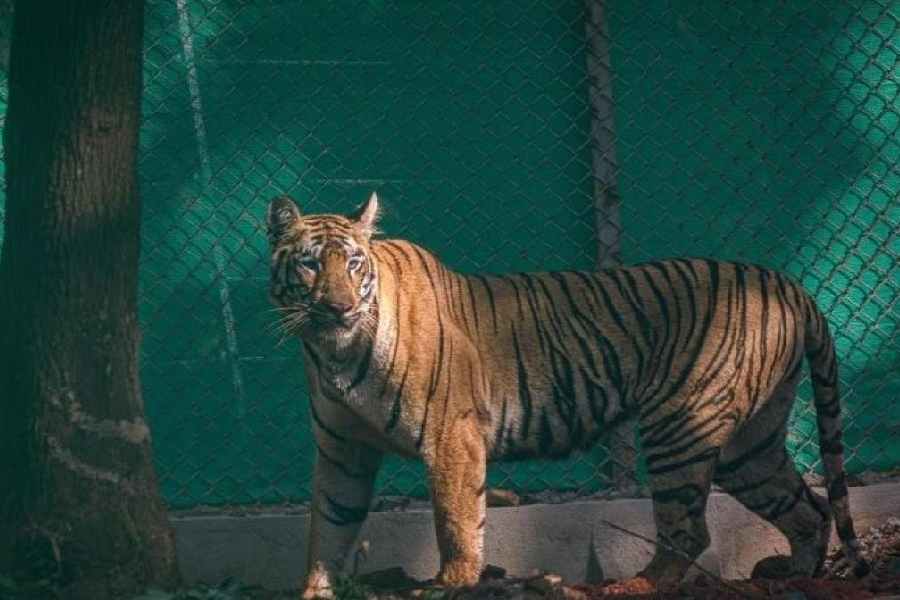Junior doctors who had spent over 24 hours on a road demanding police commissioner Vineet Goyal’s resignation over the RG Kar rape and murder vacated the spot on Tuesday afternoon after the officer met them and purportedly said he worked to the best of his ability.
Goyal also told them that he would quit if asked to do so by his superiors. A junior doctor said they found the commissioner’s answers unsatisfactory.
After a who-blinks-first contest since Monday afternoon, the police relented and allowed the junior doctors to move 100 metres closer to the police headquarters along Bowbazar Street.
The giant steel barricades were removed to make way for the young doctors who had shown extraordinary resilience and commitment to a peaceful protest. From the new location, a team of 22 junior doctors from various medical college hospitals went to Lalbazar.
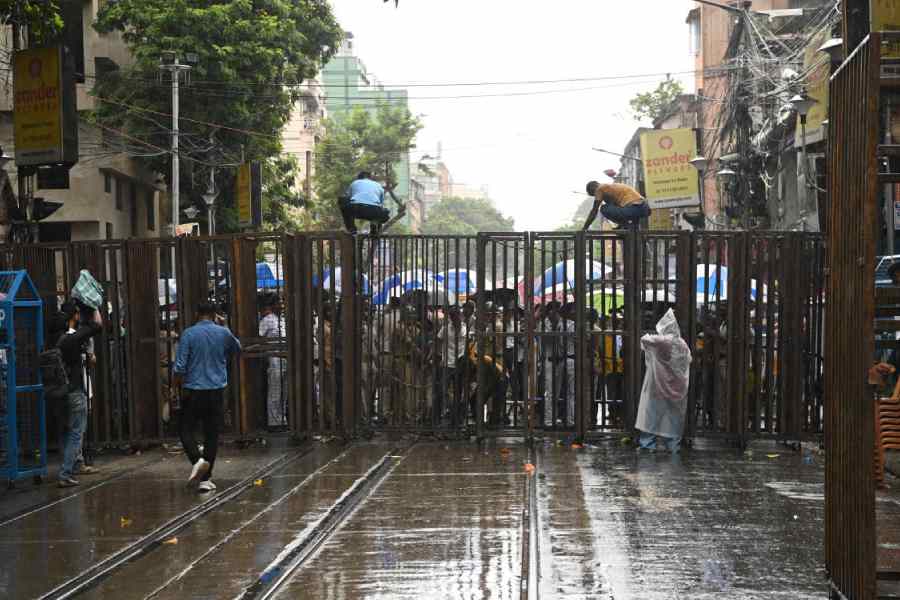
Police of Tuesday untie the padlocked chains to remove the tall iron barricades that had been put up at Phears Lane to stop the junior doctors from marching to Lalbazar. Picture by Bishwarup Dutta
The talks began at Goyal’s office after the protesters placed on his table a model of an upright spine, a quiet message to city police to do their job without fear or favour.
The delegation handed the commissioner a charter listing the three reasons over which they sought his resignation:
- Inability to protect the sanctity of the crime scene and stop the renovation work nearby;
- Failure to ensure a transparent investigation into the rape and murder;
- Failure to protect the RG Kar students from vandals on August 14 night.
Former RG Kar principal Sandip Ghosh, on whose watch a postgraduate trainee was raped and murdered on August 9, triggering protests and a cease-work by junior doctors, was sent to eight days’ police custody by a special CBI court in Alipore.
Ghosh is accused of financial irregularities. The CBI told the court he was part of a “great nexus”.
Ghosh was also suspended by the state health department, a key demand of the protesting doctors that many felt the government had taken too long to meet.
On Tuesday evening, doctors, other healthcare workers and ordinary Calcuttans formed a human chain that stretched around 14km along EM Bypass from Patuli. Traffic was not affected as the human chain was formed on a single line along the road and all crossings were kept free.
The protesting doctors want the identification and punishment of all those involved in the crime, clarity on the motive, an end to what they call a reign of terror at medical colleges and the safety of all healthcare workers.
After the meeting with Goyal, Lahari Sarkar, a junior doctor from RG Kar, said: “The police commissioner’s replies did not satisfy us. He had the same reply to almost all our questions. He kept on saying that he tried his best.
“When we told him that we were demanding his resignation, he told us that he had worked to the best of his abilities. He said he would resign if his superiors in the state administration felt that he had failed as police commissioner.”
Additional commissioner of police Murlidhar Sharma, who headed the rape-and-murder probe before it was handed over to the CBI, was present at the meeting.
At the Bowbazar Street-Phears Lane intersection in central Calcutta, about 250 metres from the police headquarters, the police and protesting doctors negotiated an end to the occupation, which had played out in full public glare.
The deadlock had started over a disagreement between the police and the doctors on how far the march to Lalbazar should be allowed to proceed.
The police stopped the rally at the Phears Lane intersection and said any march to Lalbazar was stopped there. The doctors told the police their rally should be allowed closer to Lalbazar, at least up to the Bentinck Street crossing.
After the police refused, the doctors squatted on Bowbazar Street on Monday afternoon, many staying through the night and sleeping on the road.
Many residents and shopkeepers offered them food, water and tea. Bio-toilets were arranged.
Around 2.30pm on Tuesday, the police informed the junior doctors that the barricades erected to prevent them moving ahead would be removed.
While the police agreed to remove the tall iron barricades and untied the padlocked chains that made them immovable, the doctors gave up their demand to march up to Bentick Street.
As the barricades were being removed, loud cheers echoed on the road and the protesters seemed imbued with a sense of victory. Many ordinary people who had gathered on Bowbazar Street too cheered the removal of the barricades, which they felt was a victory for the doctors' resolve.
"There was no need to put up the steel barricades. We are not a threat to law and order. We came in a peaceful procession," said Snigdha Hazra, senior resident at Medical College Kolkata.
The police allowed the rally to move about 100 metres further towards Lalbazar, up to the state excise directorate office. From there, the delegation of 22 walked up to Lalbazar.

